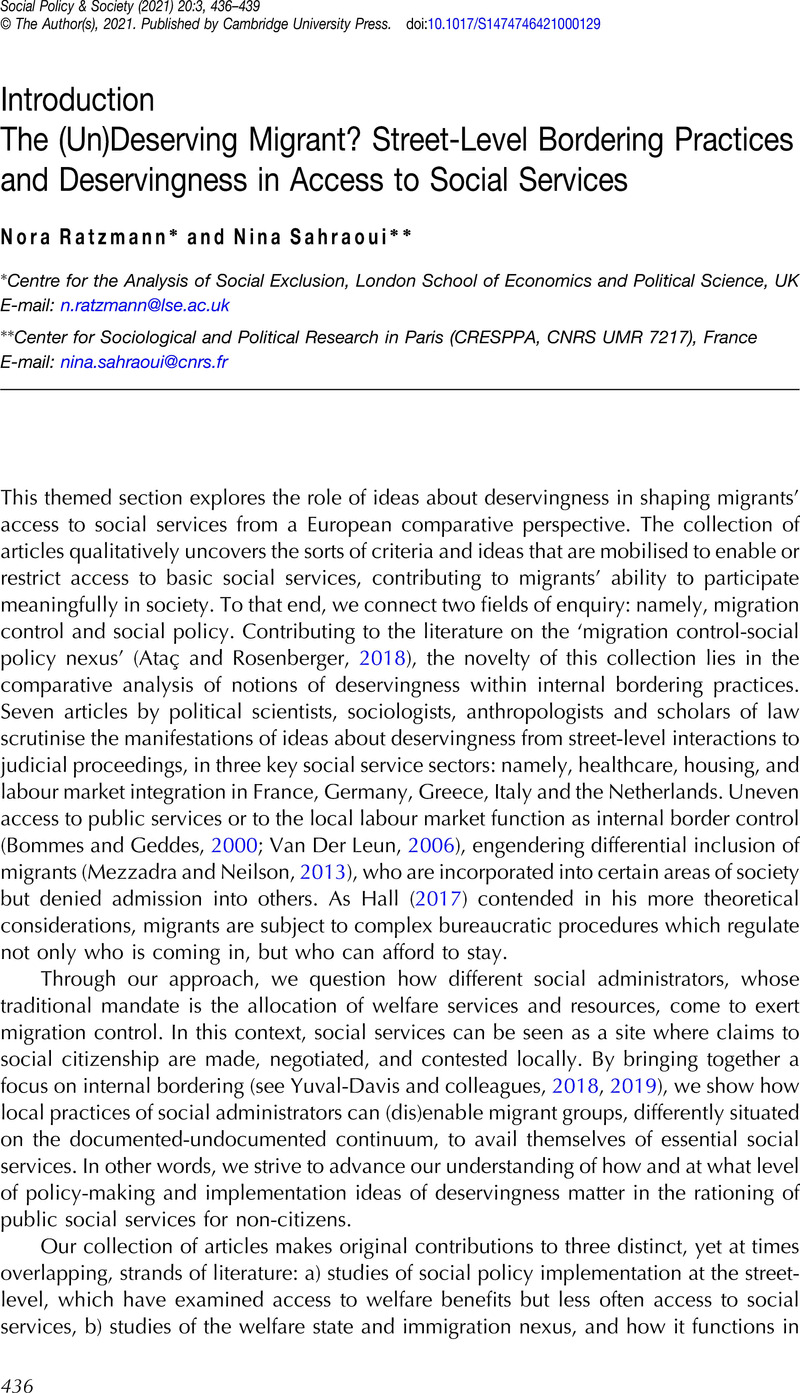Crossref Citations
This article has been cited by the following publications. This list is generated based on data provided by Crossref.
MacQuarie, Julius-Cezar
2023.
Invisible Migrant Nightworkers in 24/7 London.
p.
77.
MacQuarie, Julius-Cezar
2023.
Invisible Migrant Nightworkers in 24/7 London.
p.
1.
Blomqvist Mickelsson, Tony
2024.
Ukrainian refugees’ reception in Swedish sports clubs: ‘deservingness’ and ‘promising victimhood’.
European Journal of Social Work,
Vol. 27,
Issue. 2,
p.
267.
Rossoni, Isotta
2024.
Understanding EU Funding of Anti-Trafficking Initiatives: Where is the money (not) going?.
Anti-Trafficking Review,
p.
98.
Mickelsson, Tony Blomqvist
2025.
Ukrainian Refugees’ Differentiated Treatment: A Critical and Systematic Review.
Global Networks,
Vol. 25,
Issue. 1,
Kara, Hanna
Nordberg, Camilla
Jäppinen, Maija
and
Riitaoja, Anna-Leena
2025.
Linguistic Autonomy in a Monolingual Social Imaginary: Social Work Practitioners’ Sense-making of the Role of Language in Migrant ‘Integration’.
Social Policy and Society,
p.
1.



